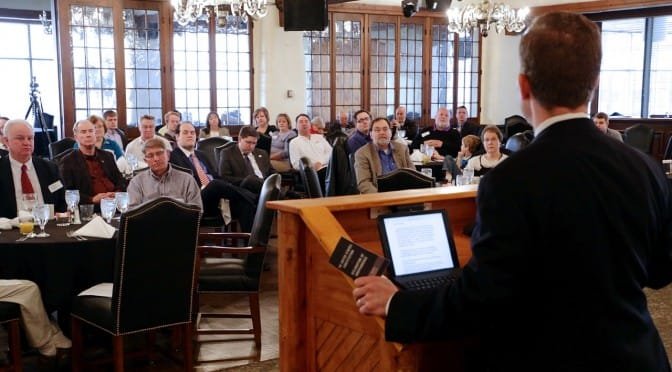Category: Politics

David Bobb: Free speech and its importance
David Bobb, President of The Bill of Rights Institute, explains freedom of speech and its importance.
Ranzau petition to Kansas Supreme Court
A filing by a group seeking to recall a county commissioner declares “facts” that can’t possibly be known at this time.

Year in review: 2015
Here are highlights from the Voice for Liberty for 2015.
Wichita Pachyderm Club: 2015 speakers and programs
Here is a list of all the Wichita Pachyderm Club programs in 2015. For many of the programs a video or audio presentation is available.
Guest host for Voice of Reason
On Thursday I filled in as guest host on The Voice of Reason with Andy Hooser as the host took a few days of vacation.
Arthur Brooks in Wichita
Arthur C. Brooks, author of “The Conservative Heart,” spoke about being a happy warrior in the conservative movement during the keynote speech of the Annual Awards Dinner of the Kansas Policy Institute.

FBI and counterterrorism
John Sullivan, who is Supervisory Special Agent for the Federal Bureau of Investigation (FBI) in Wichita, spoke to members and guests of the Wichita Pachyderm Club on the topic “Counterterrorism.”

Criminal justice reform: Why it matters
Mark Holden, Senior Vice President and General Counsel at Koch Industries, Inc., speaks about criminal justice reform initiatives Koch is encouraging in and why they’re important from moral, constitutional and fiscal perspectives.
Politics, the courts, and innovative solutions
The Honorable 18th Judicial District Court Judge Phil Journey presented an inspiring and forward thinking presentation at the Wichita Pachyderm Club luncheon meeting titled, “Politics, the Courts, and Innovative Solutions.” Said Pachyderm Club vice-president John Todd: “Judge Journey’s common-sense, fair, effective, and innovative methods of dealing with people who appear in his court is superb.”…



